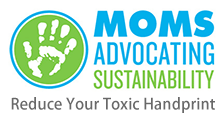By Myrto Ashe, MD, MPH, a functional medicine family physician
Sometimes it can be hard to decide: Should you spend the extra money on organic foods? Will it matter for your health? For your kids? Who do you believe?
Up until now, we have only had clues that organic foods make a difference. We have argued mainly that it should “be expected” to make a difference. But a new study from Norway involving tens of thousands of families brings us closer to the truth.
Here is how the argument has gone so far:
- Research has shown that people who eat organic food have lower levels of certain pesticides in their bodies
- Research has shown that people with these same pesticides in their bodies tend to have more health problems such as hyperactivity
- So you would expect people who eat organic food to have fewer health problems
It made sense as an argument but it was vulnerable to the belief that there is a low level of pesticides that is safe, and that the FDA knows what this level is and won’t permit food to be sold if it contains poisons above that level.
So the study from Norway is crucial because it finally made the link between what pregnant women eat and the health of their babies. Researchers followed 35,107 pregnant women and asked them whether they ate mostly organic or mostly non-organic food. Pesticide standards are definitely just as strict in Norway as they are in the US, if not more so. The outcome of the study was that women who ate mostly organic foods had half the chance that their baby boys would be born with a birth defect called hypospadias.
 Hypospadias is just the sort of defect you would expect pesticides to cause because it involves the development of male sex organs and is dependent on sex hormone levels during development. And we know that many pesticides are hormone disruptors. So the finding makes perfect biological sense.
Hypospadias is just the sort of defect you would expect pesticides to cause because it involves the development of male sex organs and is dependent on sex hormone levels during development. And we know that many pesticides are hormone disruptors. So the finding makes perfect biological sense.
So, is this a failure of regulatory agencies?
Well, not exactly. The problem seems to be that the agencies never considered the effect of using several chemicals at the same time. Yet, in the food we eat, there are dozens of pesticides, along with other chemicals. A rat study provides the answer: when 7 different chemicals were used, they acted additively, meaning that it was as though you had 7 times more of a single chemical.
Our FDA has been assuming that if a small amount of X chemical is OK, and a small amount of Y chemical is OK, then you will be fine eating something with both X and Y. But it turns out that the maximum allowable amount depends on how many chemicals are in there. That is much harder to test for and legislate.
So your best strategy is to eat organic, because everything matters, regardless of what the FDA says: how many chemicals you are exposed to, which ones, how often, how much, what you are prone to, and how efficiently you detoxify.
For more reasons to eat organic, read here.

